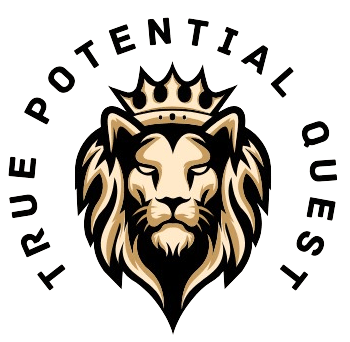Introduction To Mastering Self-Awareness
Mastering self-awareness stands as a luminous thread weaving through the fabric of our being. It is a profound mirror reflecting the depths of our innermost thoughts, emotions, and aspirations—a beacon guiding us on the journey of self-discovery. As you set sail on this voyage of exploration, let us navigate the vast seas of mastering self-awareness, uncovering its transformative potential and charting a course towards growth and fulfillment.
At its core, mastering self-awareness is the art of introspection—the ability to peel back the layers of our consciousness and examine the intricate tapestry of our thoughts, feelings, strengths, weaknesses, and motivations. It is a journey inward, a quest to unravel the mysteries of our own psyche and unlock the secrets of our true selves. In embracing self-awareness, we open the door to profound insights and profound personal growth.
The benefits of self-awareness are manifold, touching every aspect of our lives with its transformative touch. By gaining a deeper understanding of ourselves, we become empowered to make more informed decisions, navigate challenges with greater ease, and cultivate more meaningful relationships. The art of mastering self-awareness allows us to recognize our patterns and tendencies, enabling us to break free from self-limiting beliefs and behaviors and embrace new possibilities.
In practical terms, mastering self-awareness is the cornerstone of personal development, providing a solid foundation upon which to build a life of purpose and fulfillment. It allows us to set meaningful goals aligned with our values and aspirations, and to chart a course towards their realization with clarity and intention. Moreover, self-awareness fosters resilience in the face of adversity, empowering us to bounce back from setbacks with grace and determination.
As you embark on your journey of self-awareness, remember that it is a process—a continual unfolding of self-discovery and growth. Be patient with yourself, and embrace the journey with an open heart and mind. With each step forward, you will unlock new depths of understanding and tap into the boundless potential that lies within you. So, dare to delve into the depths of your own being, and discover the transformative power of self-awareness on your path to personal development.
Understanding Mastering Self-Awareness
Mastering self-awareness, often hailed as the cornerstone of personal growth and development, is a profound ability that allows individuals to introspectively understand themselves on a deeper level. It entails the capacity to recognize one’s own thoughts, emotions, strengths, weaknesses, and motivations. As you embark on the journey of understanding self-awareness, let’s delve into its intricacies, exploring its significance, benefits, and practical applications.

At its essence, mastering self-awareness is akin to shining a light into the depths of one’s consciousness, illuminating the inner landscape of thoughts, feelings, and behaviors. It provides individuals with invaluable insights into their true selves, enabling them to navigate life with clarity, authenticity, and purpose. Whether you’re a seasoned seeker of self-improvement or just beginning your journey, embracing self-awareness is the first step towards unlocking your full potential.
The benefits of self-awareness are manifold, touching every aspect of life with its transformative influence. By gaining a deeper understanding of oneself, individuals can make more informed decisions, cultivate healthier relationships, and pursue goals aligned with their values and aspirations. Moreover, self-awareness fosters resilience, enabling individuals to navigate challenges with grace and perseverance.
In practical terms, mastering self-awareness manifests in various forms, including introspection, mindfulness, and self-reflection. These practices encourage individuals to explore their inner world, observe their thoughts and emotions without judgment, and identify patterns and behaviors that may be hindering their growth. Through self-awareness, individuals can gain clarity on their goals and priorities, develop a greater sense of empathy and compassion for themselves and others, and foster a deeper connection with their authentic selves.
Understanding self-awareness is not a static process but a continual journey of exploration and discovery. It requires openness, curiosity, and a willingness to confront uncomfortable truths. By embracing self-awareness, individuals can embark on a path of personal growth and transformation, unlocking the potential within themselves to lead fulfilling and purposeful lives.
In conclusion, self-awareness is a powerful tool that empowers individuals to understand themselves on a deeper level and navigate life with clarity, authenticity, and purpose. By embracing the art of mastering self-awareness, individuals can unlock their full potential, cultivate meaningful relationships, and lead fulfilling lives aligned with their values and aspirations. So, dare to embark on the journey of self-awareness, and discover the transformative power it holds in shaping your life for the better.
Check out our blog on Personal Growth – 5 Techniques For Personal Growth
The Benefits of Mastering Self-Awareness
In your journey of personal growth, there’s a potent force waiting to be tapped into mastering self-awareness. This profound ability to understand yourself on a deeper level isn’t just a buzzword; it’s a game-changer. Let’s explore the myriad benefits of self-awareness, and how it can transform your life in ways you might not have imagined.

Mastering self-awareness is not merely a theoretical concept but a practical tool with tangible benefits in all aspects of life. From improved decision-making and emotional regulation to enhanced relationships and career success, the advantages of mastering self-awareness are manifold. By cultivating a deep understanding of yourself, you gain the ability to navigate life’s challenges with grace and resilience, harnessing your strengths and mitigating your weaknesses along the way.
Firstly, self-awareness gives you a clearer lens through which to view yourself and the world around you. By understanding your thoughts, emotions, and behaviors, you become better equipped to navigate life’s twists and turns. Imagine being in a crowded room, but instead of feeling overwhelmed, you’re able to tune into your own emotions and reactions, guiding your actions with intention and clarity.
Moreover, self-awareness fosters resilience – the ability to bounce back from setbacks with grace and determination. When you’re aware of your strengths and weaknesses, you can play to your strengths and work on areas that need improvement. Take the example of a student who faces a challenging exam; with self-awareness, they’re able to acknowledge their strengths in certain subjects while recognizing where they need to put in extra effort, ultimately leading to better performance.
Furthermore, self-awareness strengthens your relationships, both with yourself and others. When you understand your triggers and reactions, you’re less likely to project them onto others or react impulsively. This opens the door to deeper connections built on empathy, understanding, and mutual respect. For instance, imagine a couple who, through self-awareness, can communicate openly and honestly about their needs and boundaries, leading to a stronger and more fulfilling relationship.
Additionally, self-awareness empowers you to make informed decisions aligned with your values and aspirations. When you know what truly matters to you, you can filter out distractions and focus on what brings you joy and fulfillment. Consider the example of an entrepreneur who, by understanding their own passions and strengths, is able to build a business that not only succeeds financially but also brings a sense of purpose and meaning to their life.
Check out our blog on Resilience 8 Exclusive Power Keys Building Inner Strength
In essence, the benefits of self-awareness are far-reaching and profound. By cultivating this essential skill, you can navigate life with greater clarity, resilience, and authenticity, forging deeper connections and achieving greater fulfillment along the way. So, embrace the journey of self-awareness, and unlock the incredible potential it holds to transform your life for the better.
Cultivating Self-Awareness
Cultivating self-awareness is akin to embarking on a journey of self-discovery, one that holds the key to unlocking your true potential and leading a more fulfilling life. By gaining a deeper understanding of yourself – your thoughts, emotions, strengths, and weaknesses – you can make more informed decisions, build healthier relationships, and navigate life’s challenges with greater ease. Let’s explore some practical steps you can take to cultivate self-awareness, along with real-life examples to illustrate their impact.

While self-awareness may come naturally to some, it is a skill that can be cultivated and refined through practice and intention. Mindfulness practices, journaling, and seeking feedback from others are just a few strategies you can employ to deepen your self-awareness. By making a conscious effort to tune into your thoughts, emotions, and behaviors, you can gradually develop a clearer understanding of yourself and your inner world.
- Practice mindfulness: Mindfulness involves paying attention to the present moment without judgment. By tuning into your thoughts, feelings, and bodily sensations, you can develop a greater awareness of your inner landscape. Take, for example, the story of Sarah, who struggled with anxiety. Through mindfulness meditation, she learned to observe her anxious thoughts without getting caught up in them, allowing her to respond more calmly and effectively to stressful situations.
- Keep a journal: Journaling is a powerful tool for self-reflection and introspection. By writing down your thoughts and feelings, you can gain insights into your patterns, triggers, and areas for growth. Consider the case of Alex, who struggled with low self-esteem. Through journaling, he uncovered recurring negative self-talk and began to challenge these beliefs, ultimately cultivating a more positive self-image and sense of self-worth.
- Seek feedback: Soliciting feedback from others can provide valuable insights into how you’re perceived and how your actions impact those around you. This can help you identify blind spots and areas for improvement. Take, for instance, the story of Maya, who realized through feedback from her colleagues that she often came across as dismissive during team meetings. Armed with this knowledge, she made a conscious effort to listen more attentively and validate others’ contributions, strengthening her relationships and leadership skills.
- Practice self-reflection: Carve out time regularly to reflect on your experiences, decisions, and emotions. Ask yourself probing questions and explore the underlying motivations behind your actions. For example, Tom found himself feeling unfulfilled in his career. Through self-reflection, he realized that he was pursuing a path that didn’t align with his passions and values, prompting him to make a career change that brought him greater satisfaction and purpose.
Example of Probing questions:
- What are my core values and beliefs, and how do they influence my thoughts and actions?
a. Reflecting on your values and beliefs can help you understand what drives you and guides your decision-making process. Consider asking yourself:
i) What principles do I hold most dear in life?
ii) How do these values influence the choices I make on a daily basis?
iii) Are there any instances where my actions may be in conflict with my values, and if so, why?
2. What are my strengths and weaknesses, and how do they shape my interactions with others and my approach to challenges?
a. Recognizing your strengths and weaknesses can provide valuable insights into areas where you excel and areas where you may need to focus on improvement. Ask yourself:
i) What skills or qualities do I excel at, and how do they contribute to my success?
ii) What are some areas where I could improve or develop further?
iii) How do my strengths and weaknesses impact my relationships with others and my ability to overcome obstacles?
3. What are my long-term goals and aspirations, and how do they align with my values and priorities?
a. Reflecting on your goals and aspirations can help you ensure that your actions are aligned with your overarching vision for your life. Consider asking yourself:
i) What are my biggest dreams and ambitions, and why are they important to me?
ii) How do my goals align with my values and priorities?
iii) What steps can I take to work towards achieving my long-term aspirations, and how can I ensure that my daily actions are in line with these goals?
Cultivating self-awareness is a transformative journey that empowers you to live authentically and intentionally. By incorporating mindfulness, journaling, seeking feedback, and practicing self-reflection into your daily routine, you can deepen your understanding of yourself and unleash your full potential. So, dare to embark on this journey of self-discovery, and discover the profound impact it can have on your life.
Check out our blog on Personal Growth – 5 Techniques For Personal Growth
Practical Applications of Self-Awareness
Self-awareness isn’t just a lofty concept reserved for philosophers and spiritual gurus; it’s a practical skill with tangible applications that can positively impact various aspects of your life. By cultivating self-awareness, you can gain deeper insights into yourself and your surroundings, make more informed decisions, and lead a more fulfilling and authentic life. Let’s explore some practical applications of self-awareness and how they can benefit you in your personal and professional endeavors.

- Improved communication: Self-awareness enhances your ability to communicate effectively with others by helping you understand your own emotions, thoughts, and behaviors. When you’re aware of your communication style and how it may be perceived by others, you can adjust your approach to foster better understanding and rapport. For example, if you tend to become defensive during conflicts, self-awareness can help you recognize this pattern and choose more constructive ways to express yourself, leading to more productive interactions and healthier relationships.
- Enhanced leadership skills: Self-awareness is a cornerstone of effective leadership, as it enables you to lead with authenticity, empathy, and integrity. By understanding your strengths, weaknesses, and values, you can lead by example and inspire others to reach their full potential. For instance, a self-aware leader may recognize their tendency to micromanage and instead delegate tasks to empower their team members, fostering a culture of trust and collaboration.
- Better decision-making: Self-awareness empowers you to make decisions that are aligned with your values, goals, and priorities. By tuning into your intuition and inner wisdom, you can navigate complex situations with clarity and confidence. For example, if you’re faced with a career dilemma, self-awareness can help you tune into your passions and aspirations, guiding you towards a path that brings you fulfillment and satisfaction, rather than simply chasing external markers of success.
- Stress management: Self-awareness enables you to recognize and manage stress more effectively by identifying your triggers and implementing healthy coping mechanisms. By paying attention to your physical and emotional responses to stress, you can develop strategies to relax and recharge, such as mindfulness meditation, exercise, or spending time in nature. For instance, if you notice that you tend to feel overwhelmed when juggling multiple tasks, self-awareness can prompt you to prioritize self-care and delegate tasks when necessary, preventing burnout and promoting overall well-being.
In a nutshell, self-awareness is a practical skill that empowers you to navigate life’s challenges with grace and resilience. By applying self-awareness in your daily life, you can improve your communication, enhance your leadership skills, make better decisions, and manage stress more effectively. So, dare to cultivate self-awareness, and discover the transformative impact it can have on your personal and professional success.
Overcoming Challenges and Staying Committed
Like any journey of self-discovery, the path to self-awareness is not without its challenges. Self-doubt, fear of vulnerability, and resistance to change may arise along the way, threatening to derail your progress. However, by staying committed to your growth and embracing the process with patience and compassion, you can overcome these obstacles and continue on your path towards greater self-awareness and personal development.

Overcoming challenges and staying committed are essential components of achieving any goal or pursuing personal growth. Whether you’re striving to advance in your career, improve your health, or cultivate new skills, you’ll inevitably encounter obstacles along the way. However, it’s how you respond to these challenges and maintain your commitment that ultimately determines your success. Let’s explore some strategies for overcoming challenges and staying committed, along with a real-life example to illustrate their effectiveness.
Check out our blog on Resilience 8 Exclusive Power Keys Building Inner Strength
- Embrace resilience: Resilience is the ability to bounce back from setbacks and persevere in the face of adversity. Cultivating resilience involves developing a growth mindset, reframing setbacks as opportunities for learning and growth, and maintaining a positive outlook even in challenging circumstances. For example, consider the story of Helen Keller, who overcame profound physical disabilities to become a renowned author and activist. Despite facing seemingly insurmountable challenges, Keller’s resilience and determination enabled her to achieve remarkable success and inspire countless others.
- Set realistic goals: Setting realistic, achievable goals helps you stay focused and motivated, even when faced with obstacles. Break down your larger goals into smaller, manageable tasks, and celebrate your progress along the way. By setting realistic expectations for yourself, you can avoid feeling overwhelmed and maintain momentum towards your objectives. Take, for instance, the story of Arunima Sinha, who became the first female amputee to climb Mount Everest. Despite losing her leg in a tragic accident, Sinha set her sights on this ambitious goal and persevered through years of training and preparation, demonstrating the power of setting realistic goals and staying committed to achieving them.
- Cultivate a support network: Surrounding yourself with a supportive community of friends, family, mentors, and peers can provide invaluable encouragement and guidance as you navigate challenges and stay committed to your goals. Lean on your support network for advice, motivation, and accountability, and don’t hesitate to ask for help when needed. Consider the example of Mahatma Gandhi, whose commitment to nonviolent resistance and social justice was fueled by the support of his fellow activists and the larger Indian independence movement. Gandhi’s ability to rally support and inspire collective action played a crucial role in achieving significant societal change, underscoring the importance of cultivating a strong support network in overcoming challenges and staying committed to your values and goals.
Overcoming challenges and staying committed require resilience, realistic goal-setting, and a supportive community. By embracing these strategies and drawing inspiration from real-life examples of perseverance and determination, you can overcome obstacles and achieve success in your personal and professional endeavors. So, dare to confront challenges head-on, stay committed to your goals, and let your resilience shine through as you journey towards your aspirations.
Conclusion:
As you reflect on the insights shared in this exploration of self-awareness, remember that the power to transform your life lies within you. By harnessing the power of self-awareness, you can unlock your full potential, cultivate meaningful connections, and create a life of purpose and fulfillment. So, dare to delve into the depths of your inner world, embrace the journey of self-discovery, and awaken to the boundless possibilities that await you on the path to personal development.
Check out this amazing Blog on Why Self-Awareness is Important?|A Pathway to Happiness





Pingback: Embracing Your Inner Child: 5 Awesome Steps Journey to Lasting Self-Love - True Potential Quest
Pingback: Embracing Discomfort With 5 Strategies
Pingback: Nurturing Self-Love : 5 Tips To Setting Healthy Boundaries for Your Well-being - True Potential Quest
Pingback: Crafting Your Awesome Narrative: Awakening the Power Within" - 6 Steps to Rewrite Your Story - True Potential Quest
Pingback: Embracing Imperfection: 6 Techniques to Overcome Perfectionism - True Potential Quest
Pingback: Art of Active Listening: 7 Strategies for Improved Communication - True Potential Quest